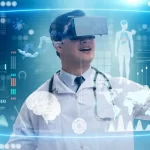
How Can You Become a Medical Coder?
November 20, 2024Medical coding is a critical function within the healthcare industry, bridging the gap between clinical documentation and billing systems. Medical coders translate patient information from medical records—such as physician notes, diagnostic reports, and procedural details—into standardized alphanumeric codes. These codes ensure accurate record-keeping, facilitate insurance claims processing, and support healthcare analytics.
What is Medical Coding?
Medical coding involves converting healthcare details—diagnoses, procedures, and equipment—into universal medical codes. These codes serve as a common language for healthcare providers, insurers, and researchers.
Commonly Used Medical Coding Systems:
- International Classification of Diseases (ICD): Developed by the World Health Organization (WHO), ICD codes categorize diseases, symptoms, and causes of death, aiding global health data collection and analysis.
- Current Procedural Terminology (CPT): Created by the American Medical Association (AMA), CPT codes classify medical, surgical, and diagnostic services into three categories: clinical procedures, lab tests, and emerging technologies.
- Healthcare Common Procedure Coding System (HCPCS): Designed by the Centers for Medicare and Medicaid Services (CMS), HCPCS codes cover medical products, supplies, and services, often used in insurance claims for Medicare.
These codes simplify complex medical data, enabling precise communication among healthcare stakeholders.
Responsibilities of a Medical Coder
Medical coders play a vital role in maintaining the integrity of healthcare records. Their responsibilities include:
- Translating patient information into appropriate medical codes.
- Reviewing medical documents for accuracy and completeness.
- Conducting chart audits and filing medical records.
- Ensuring compliance with coding guidelines and policies.
- Correcting grammatical or informational errors in medical documents.
Medical Coding vs. Medical Billing
Though related, medical coding and medical billing are distinct.
- Medical Coders: Focus on extracting clinical details from records and assigning codes.
- Medical Billers: Handle financial transactions, process insurance claims, and manage billing.
Both roles ensure smooth healthcare operations but require different skill sets.
Skills Required for Medical Coding
To succeed as a medical coder, you need:
- Attention to Detail: Accurate coding is crucial for billing and record-keeping.
- Time Management: Efficiently handle multiple patient records daily.
- Technical Proficiency: Familiarity with coding software and systems.
- Organizational Skills: Maintain well-structured and accessible records.
- Ethics and Communication: Uphold patient confidentiality and collaborate with healthcare teams.
Path to Becoming a Medical Coder
- Meet Basic Requirements: Obtain a high school diploma or GED.
- Complete Training: Enroll in a certificate or associate degree program in medical coding. Online and in-person options are available.
- Get Certified: Obtain certifications such as Certified Professional Coder (CPC) or Certified Medical Coder (CMC) from recognized organizations like AHIMA or AAPC.
- Gain Experience: Start with entry-level roles to build expertise.
- Refine Skills: Stay updated with coding trends and software advancements.
Job Outlook and Salary
Medical coders are in demand, with the profession projected to grow by 7% between 2021 and 2031. In the U.S., the average annual salary for medical coders is $46,660, with higher earnings possible based on certifications, experience, and location.
Work Environments for Medical Coders
Medical coders can work in various settings, including:
- Hospitals and Clinics: Handling diverse records in large billing departments.
- Insurance Companies: Verifying and processing claims.
- Government Agencies: Supporting healthcare programs for federal entities.
- Nursing Homes: Managing records for elderly care facilities.
- Remote Work: Offering coding services from home with proper equipment and training.
Why Pursue a Career in Medical Coding?
Medical coding offers a rewarding career path with flexibility, growth opportunities, and a significant role in healthcare delivery. Start your journey by enrolling in a certification program or pursuing an associate degree. Explore options like Yale’s Introduction to Medical Software to familiarize yourself with healthcare IT systems and coding technologies.
Medical coding is more than just data entry—it’s a vital part of modern healthcare, ensuring accurate documentation, efficient billing, and improved patient care.

















